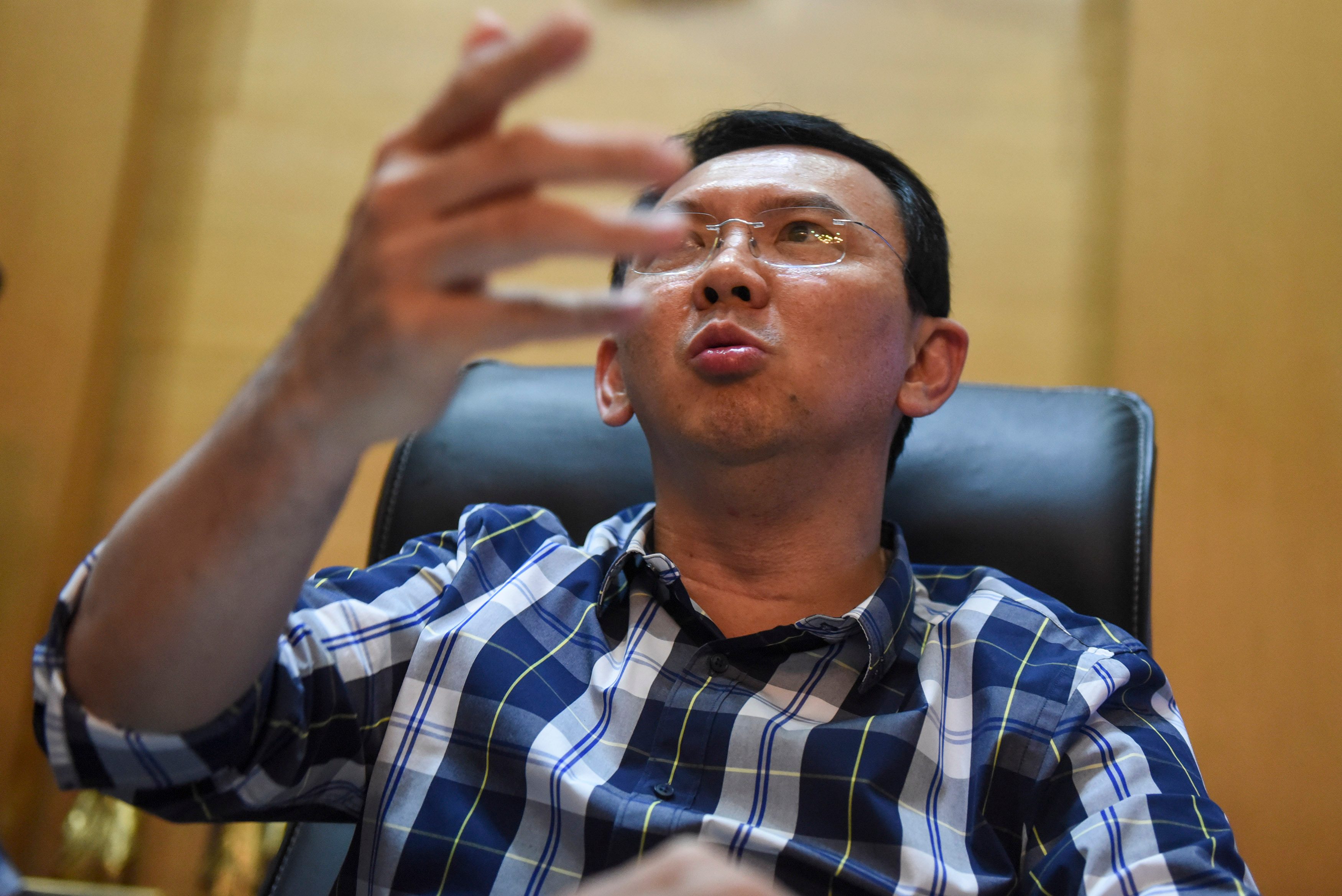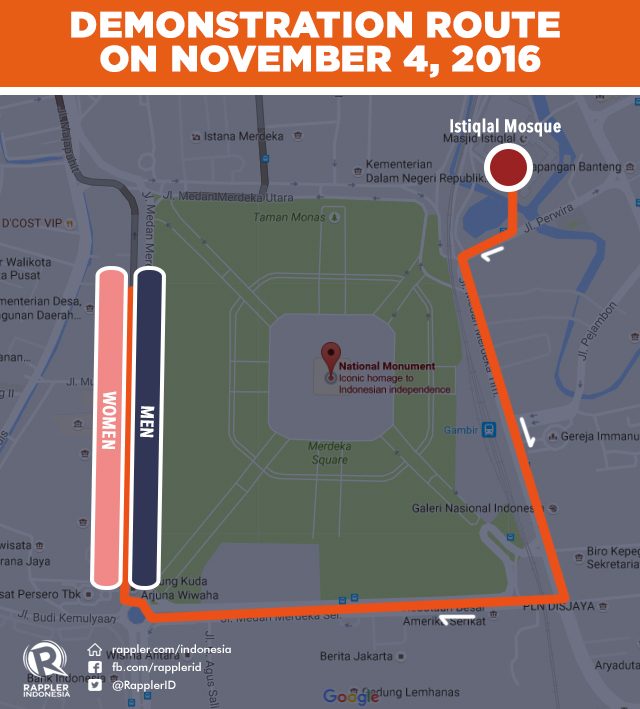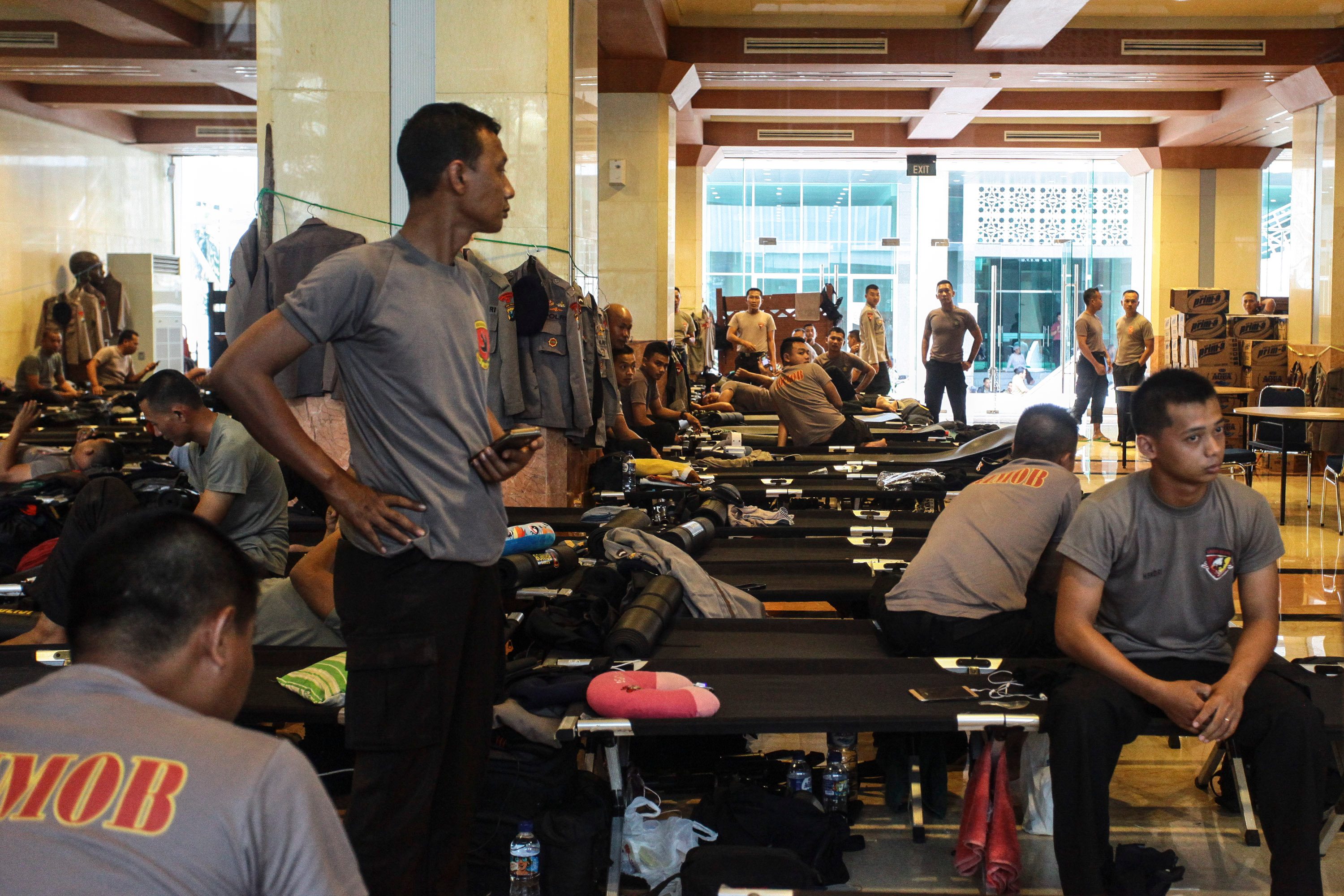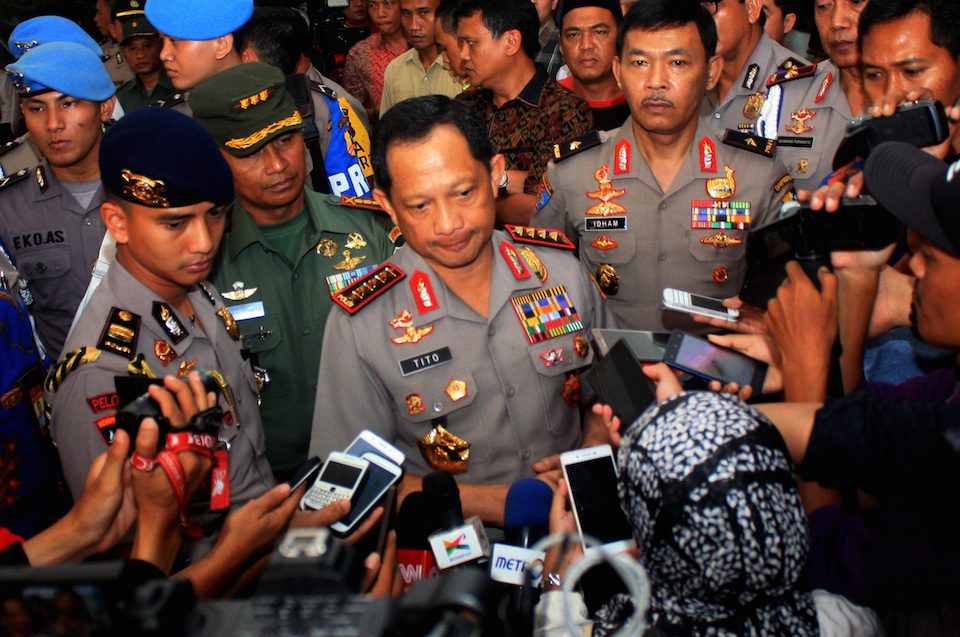SUMMARY
This is AI generated summarization, which may have errors. For context, always refer to the full article.

JAKARTA, Indonesia – It’s a protest much-talked about, days before it is set to happen.
On Friday, November 4, tens of thousands of Muslims are expected to gather on the streets of Jakarta to protest against Jakarta Governor Basuki Tjahaja Purnama, better known as Ahok.
Why has it flooded news headlines? Why have some universities and offices closed in anticipation of the demonstration? Why are the police deploying 20,000 officers?
Here’s all you need to know about the demonstration that has everyone talking.
1. What is the cause of the protest?
Islamic groups are angry at Ahok for controversial remarks he made in September, when he told a crowd they had been “deceived” by his opponents who used a Koranic verse to try to discourage them from voting for a Christian.
“You are being fooled,” he said.
They claim he insulted Islam by using a verse from the Koran to criticize his opponents ahead of the February gubernatorial polls.
Ahok apologized saying he had no intention to insult Islam but his apology apparently failed to quell the anger among some Muslims.
In October, a protest of about 5,000 people demanded Ahok be investigated for blasphemy and prosecuted.
While the initial protests were triggered by the Muslim hardliners group Islamic Defenders’ Front (FPI) – which in October vowed the crowd will return and take to the streets again if the police don’t investigate Ahok immediately – many believe the demonstrations are also political.

Ahok, Jakarta’s second Christian governor and the first from Indonesia’s ethnic Chinese community, has won huge popularity with his no-nonsense style and determination to clean up Jakarta, an overcrowded, disorganized and polluted metropolis.
But his tough-talking style, unusual for a politician in Indonesia, has alienated some and he has also faced constant opposition from hardline Islamic groups, who protested for weeks when he became governor two years ago.
Ahok – who is a double minority being Chinese and Christian in predominantly Muslim Indonesia – still remains the favorite to win the election. He is running against the son of former president Susilo Bambang Yudhoyono and a popular ex-education minister.
He became Jakarta governor in November 2014, but was not elected to the post. He was deputy governor and automatically became governor after incumbent Joko Widodo was elected Indonesian president.
Political parties and figures who have expressed support for Ahok’s opponents have vowed to join the protest.
As for Ahok? He says he will be campaigning in small villages on the day of the protest.
2. What should we expect
While the first demonstration numbered 5,000 according to police, organizers this time around said about 35,000 to 50,000 people from all over the country are expected to come. More Islamic groups have vowed to join compared to last time.
The protest is expected to start after Friday prayers. In the late morning, protesters will gather in front of Istiqlal Mosque, the largest mosque in Southeast Asia. After the prayers, around 1pm, they will start marching from the mosque to the State Palace and the House of Representatives, where they will urge lawmakers to prosecute the governor.
Jakartans should expect heavy traffic, delays and road closures around the area. Below is the route the protesters plan to take:

Protests are also expected in Surabaya and Medan, as well as large and secondary cities throughout Sumatra.
3. Jihadists call for violence
Authorities are on edge after the police and military confirmed that Islamic State in Iraq and Syria (ISIS) supporters are expected to join the protest.
Defense Minister Ryamizard Ryacudu and National Police Chief Tito Karnavian said this week that they are keeping a close eye on ISIS sympathizers, and are ready to act if they were to plan an attack.
Groups like the Jemaah Ansharut Tauhid (JAT) and Jemaah Ansharut Daulah, who have ties to individuals believed to be behind the January terror attacks in Jakarta, are expected to attend the rally as well.
Syrian-based jihadist group Jabhat Fatah al-Sham is also said to have urged violence at the rally, saying their bullets will take care of Ahok if the protest does not, while terror expert Sidney Jones said messages exchanged on Telegram app encouraged violence.
The Sydney Morning Herald quoted former terrorist Nasir Abas, who warned there was a risk that both supporters of Islamic State and al-Qaeda’s regional affiliate, Jemaah Islamiyah, would attend the November 4 demonstration.
While the two groups are rivals in Syria, he said “in Indonesia they can be united because there is a common enemy. In their view, it is Ahok.”
4. Embassies issued warnings

Several embassies have asked their citizens to take extra care, including those of Australia, the United States and Singapore, among others.
The Australian Department of Foreign Affairs and Trade updated its travel advice warning of heightened security due to the protest.
The U.S. Embassy is not taking any chances either. They announced the Consular Section would be closed on that day, and told their citizens to avoid the area of protests, since “there exists the possibility that some extremist groups could take advantage of the November 4 protests to incite or carry out violence.”
The Singapore Embassy in Indonesia also asked Singaporeans who are planning to be on Indonesia on the 4th to “monitor the local media for updates and developments” and to “exercise vigilance and take the necessesary precautions for their personal safety.”
5. Government preparations

About 20,000 police and 500 soldiers from all over the country will be deployed to ensure safety. The police are on its highest security level.
Police chief Karnavian said a counterterrorism unit is monitoring ISIS sympathizers around the clock, but said he does not think they will commit any attacks.
Police spokesman Awi Setiyono said female police officers wearing hijab – the traditional covering for the head and neck worn by many Muslim women – will also be deployed to the frontlines “as negotiators.”
Indonesian military chief Gatot Nurmantyo encouraged people to go about their business as usual, but warned protesters they were ready if things got out of hand.
“If the worst case scenario happens, we will be saving the general public first, not violent protesters,” he told reporters.
In the build-up to the protest, Indonesian President Joko “Jokowi” Widodo has appealed to Muslim leaders for peace, as well as reached out to his 2014 presidential rival Prabowo Subianto, in an attempt to maintain unity and ease tensions ahead of the demonstration. – with reports from Agence France-Presse/Rappler.com
Add a comment
How does this make you feel?
There are no comments yet. Add your comment to start the conversation.